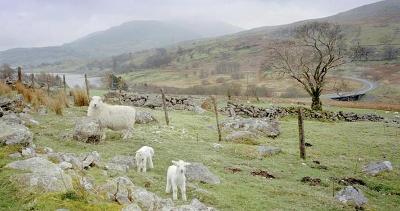Climate change and Farming

Powys is home to 1/5 of all the agricultural holdings in Wales. In Wales agriculture makes up around 13% of our greenhouse gas emissions, for Powys this figure is 28%. The sector faces challenges working towards a less carbon intensive and sustainable future, but most Welsh farmers understand the need to adapt. ·
- Productivity: There is evidence that suggests Welsh farms can increase financial resilience through nature-friendly farming practices which balance food production with the natural environment.
- Sustainability: Sheep farmers in Powys and further afield are already seeing the benefits of more sustainable agriculture. In 2018 alone, drought and flooding added £151m to the total value of extra livestock feed bought in by Welsh farmers, and the value of lambs lost was estimated at £23.8m. While climate change is leading to a reliance on costly inorganic fertilisers and imported feed to improve yields, this is a precarious business model.
- Vulnerability: Farmers have a vital role in managing the soils and grassland we need to hold carbon from the atmosphere and slow future climate change. While the climate impact of Welsh farming is lower than the global industry average, farmers are at the front line of climate risk. Lands degrade faster with climate change, adding to the challenge for established farming methods.
- Opportunity: There are financial incentives including selling carbon credits to manage carbon through effective land management practices. From 2026 Welsh farming scheme will reward nature positive land management.
Look at the Resources page to see how you can help, and get support, to protect future generations from the worst effects of climate change.




